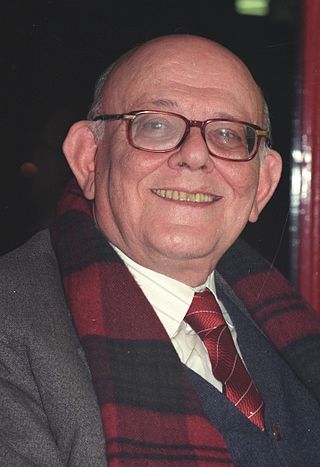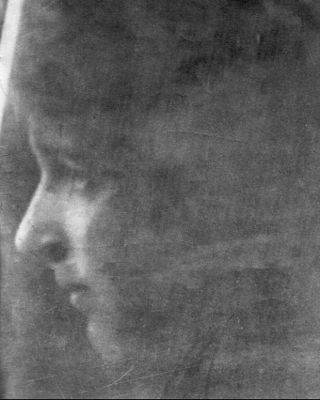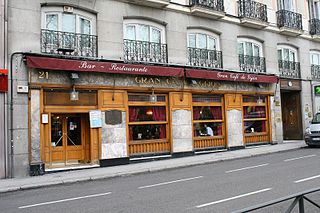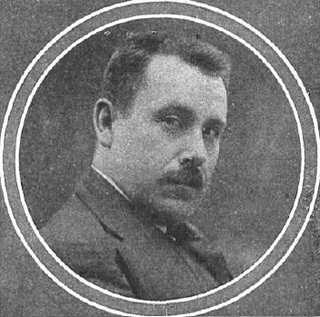
Alfonso Reyes Ochoa was a Mexican writer, philosopher and diplomat. He was nominated for the Nobel Prize in Literature five times and has been acclaimed as one of the greatest authors in Spanish language. He served as ambassador of Mexico to Argentina and Brazil.

José Ortega y Gasset was a Spanish philosopher and essayist. He worked during the first half of the 20th century while Spain oscillated between monarchy, republicanism, and dictatorship. His philosophy has been characterized as a "philosophy of life" that "comprised a long-hidden beginning in a pragmatist metaphysics inspired by William James, and with a general method from a realist phenomenology imitating Edmund Husserl, which served both his proto-existentialism and his realist historicism, which has been compared to both Wilhelm Dilthey and Benedetto Croce."
Jorge Ángel Livraga Rizzi was an Argentine poet, novelist, self-taught philosopher, essayist, educator and lecturer of Italian heritage best known for having founded and directed New Acropolis, an international philosophical educational and cultural organisation.
José Gaos was a Spanish philosopher who obtained political asylum in Mexico during the Spanish Civil War and became one of the most important Mexican philosophers of the 20th century. He was a member of the Madrid School.

Leonardo Polo was a renowned Spanish philosopher best known for his philosophical method called abandonment of the mental limit and the profound philosophical implications and results of the application of this method.

María Zambrano Alarcón was a Spanish essayist and philosopher associated with the Generation of '36 movement. Her extensive work between the civic engagement and the poetic reflection started to be recognised in Spain over the last quarter of the 20th century after living many years in exile. She was awarded the Prince of Asturias Award (1981) and the Miguel de Cervantes Prize (1988).

Eduard (Édouard) Schuré was a French philosopher, poet, playwright, novelist, music critic, and publicist of esoteric literature.

Juan David García Bacca was a Spanish-Venezuelan philosopher and university professor. He was born in Pamplona on June 26, 1901, and died on August 5, 1992, in Quito, Ecuador. Bacca began his education under the Claretians and was ordained as a priest in 1925. He continued his studies at the University of Munich, the University of Zurich, and the University of Paris. However, during the 1930s, he left the Church and pursued philosophy at the University of Barcelona. In 1936 after criticizing Francisco Franco, Bacca was forced to live in exile. He first traveled to Ecuador where he taught at the Central University of Ecuador (1939-1942). While in Ecuador he became close friends with a writer named Alfredo Pareja Diezcanseco. He then went to Mexico where he taught at UNAM from 1942 to 1946. He eventually established himself in Venezuela in 1946 and was granted citizenship in 1952. Bacca was a professor at the Central University of Venezuela until his retirement in 1971. He was recognized for his life's work and was awarded the National Prize for Literature in 1978.
Salvator Tongiorgi was an Italian Jesuit philosopher and theologian.
Byzantine philosophy refers to the distinctive philosophical ideas of the philosophers and scholars of the Byzantine Empire, especially between the 8th and 15th centuries. It was characterised by a Christian world-view, closely linked to Eastern Orthodox theology, but drawing ideas directly from the Greek texts of Plato, Aristotle, and the Neoplatonists.
The Mexican Youth Athenaeum, later known as the Athenaeum of Mexico, was a Mexican civil association founded on October 28, 1909 with the purpose of working in favor of culture and art, by means of organization public meetings and debates. Born as a response of a generation of young intellectuals who in the decline of the rule of President Porfirio Díaz set a series of criticisms to determinism and mechanism set by the Comtian and Spencerian positivism as the development model of Porfirio Díaz's administration and the group of the científicos. Through a series of conferences and different cultural efforts they activated a reflexive awareness on education. It was an association of intellectuals, primarily writers and philosophers. Most of the members were indeed young and came to represent a new generation of Mexican scholars, reacting specifically against positivism and its prevalence in the ideology of the regime of Dictator Porfirio Diaz. The group sought a revindication of the humanities as the center of cultural creation.

Socrates is a 1971 Spanish-Italian-French television film directed by Roberto Rossellini. The film is an adaptation of several Plato dialogues, including The Apology, Euthyphro, Crito, and Phaedo.
Juliana González Valenzuela is a Mexican philosopher.
Luis Pedro Alejandro Recasens Siches was a Spanish politician and a legal philosopher.

Café Gijón is a culturally significant coffeehouse situated at No. 21, in the boulevard of central Madrid, Spain, which is known as Paseo de Recoletos. The café is opposite both a railway station of the same name and the National Library of Spain (BNE). The terrace in front is on the central walkway of the Paseo.

Pablo Luna Carné was a Spanish composer. His best-known composition is the aria "De España vengo" from the zarzuela El niño judío.
Mario Roso de Luna was a Spanish lawyer, theosophist, journalist, writer, freemason and astrologist.
Krausism is a doctrine named after the German philosopher Karl Christian Friedrich Krause (1781–1832) that advocates doctrinal tolerance and academic freedom from dogma.
José Luis Gómez Martínez is a professor emeritus of Spanish at the University of Georgia. Essayist and literary critic, his research into the theory of the essay, along with his work on Hispanic thought and Latin American fiction helped push literary boundaries and open up new lines of thinking within and outside of academia. During his professional career José Luis Gómez won several awards for his scholarly contributions, including the prestigious Guggenheim Memorial Foundation Fellowship (1984–1985), the Albert Christ-Janer Award (1988), named Professor of the Year by the AATSP-GA, the 1989 Sturgis Leavitt Prize. In 2000 he was elected Membro Correspondente da Academia Brasileira de Filosofia.

Modern Theosophy is classified by prominent representatives of Western philosophy as a "pantheistic philosophical-religious system." Russian philosopher Vladimir Trefilov claimed that Blavatsky's doctrine was formed from the beginning as a synthesis of philosophical views and religious forms of the various ages and peoples with modern scientific ideas. Michael Wakoff, an author of The Routledge Encyclopedia of Philosophy, stated that Blavatskian Theosophy was based on Buddhist and Hindu philosophy, and fragments of the Western esotericism with using an "absolutist metaphysics." In The New Encyclopedia of Philosophy it is said that Blavatsky's Theosophy is an attempt to merge into a universal doctrine all religions by revealing their "common deep essence" and detection of "identity meanings of symbols," all philosophies, and all sciences.










